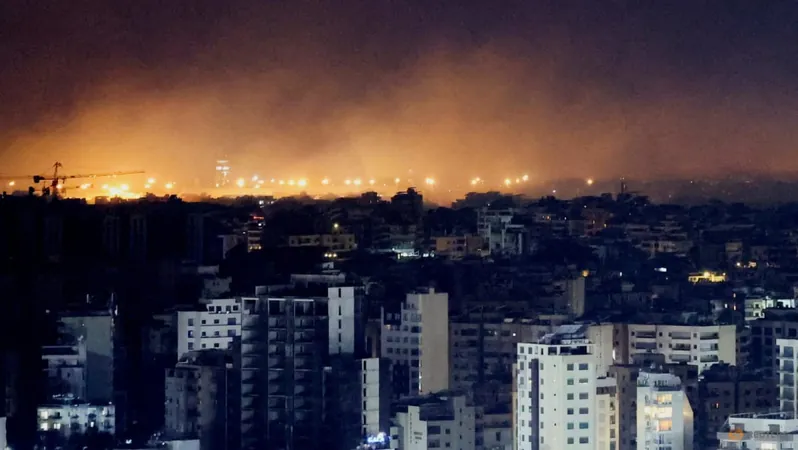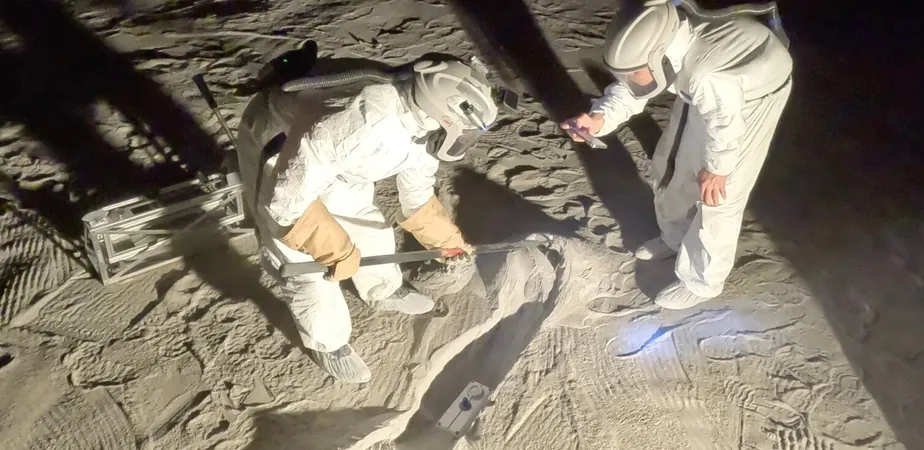
Escalating Tensions: Israel Launches Ground Operations Against Hezbollah in Southern Lebanon
2024-09-30
Israel's military has announced the commencement of "limited, localized, and targeted raids" against Hezbollah positions in the southern Lebanon border area as of Tuesday, October 1. The Israel Defense Forces (IDF) indicated that these operations are directed at specific targets in villages close to the border that pose an "immediate threat to Israeli communities" in the northern region of the country.
Support for these ground operations is being provided by the Israeli Air Force and IDF artillery, which are executing precise strikes on military installations in the area. The IDF emphasized its commitment to achieving operational goals amid the ongoing conflict, stating that all necessary steps would be taken to ensure the safety of Israeli citizens and facilitate the return of those displaced in northern Israel due to the conflict.
The continuing military operations coincide with combat in Gaza and are subject to ongoing assessments of the situation. Hezbollah's deputy leader, Naim Qassem, issued a warning, stating that the group's fighters are "ready if Israel decides to enter by land," following the recent death of the group's leader, Hassan Nasrallah.
While there was no immediate response from Hezbollah regarding the Israeli ground raids, their media outlet, Al-Manar, broadcasted the announcement on various social media platforms. In light of the escalating tensions, Lebanese national forces have begun repositioning their troops further from the border, as confirmed by a military official speaking to AFP.
The United States has also acknowledged the situation, with State Department spokesman Matthew Miller stating that Israeli forces are conducting "limited operations targeting Hezbollah infrastructure near the border." U.S. Defense Secretary Lloyd Austin expressed support for Israel’s actions and cautioned Iran against future aggression towards Israel.
On Monday evening, residents in southern Beirut received evacuation warnings from the Israeli military, citing their proximity to Hezbollah facilities. Following these alerts, striking operations were reported in several districts of southern Beirut, resulting in significant destruction. A Lebanese security source reported multiple airstrikes in the capital, contributing to a chaotic atmosphere.
Further complicating the situation, news emerged of an Israeli strike targeting Mounir Maqdah, a senior commander of the Palestinian Fatah movement, in the Ain al-Hilweh refugee camp. His current status remains unverified. Reports indicate that Israeli airstrikes have led to at least 95 deaths and 172 injuries within a recent 24-hour period across southern Lebanon, including Beirut.
International calls for de-escalation have been largely ignored by Israel, which has indicated it will persist in combating Hezbollah, particularly following the assassination of Nasrallah. Israeli Defense Minister Yoav Gallant stressed that the battle is far from over and that a strong military response, encompassing land, air, and sea operations, will continue until peace is restored.
The recent conflict escalated following a series of low-intensity strikes from Hezbollah targeting Israeli forces, ignited after Hamas's unprecedented attack on October 7, which led to the current war in Gaza. This month has seen a dramatic intensification of border clashes, heightening anxieties about a broader regional conflict.
Israel has officially designated parts of the border area as a "closed military zone," which comes as civilian casualties rise rapidly. Over the past week, hundreds in Lebanon have died due to Israeli strikes, with upwards of a million people forced to flee their homes. Meanwhile, Hezbollah and allied groups have retaliated with rockets and drones targeting Israel, although there have been no reported fatalities from those attacks.
Prime Minister Benjamin Netanyahu has pointed fingers at Iran for exacerbating the conflict, declaring that the nation is deepening the region's woes. He insisted that "there is nowhere in the Middle East Israel cannot reach," implying the vast reach of Israeli military capabilities.
In response to the ongoing crisis, Lebanese Prime Minister Najib Mikati has called for a ceasefire based on a recent proposal from the U.S. and France, advocating for an end to what he described as "Israeli aggression against Lebanon."
The situation remains tense as Israeli developments indicate a comprehensive military strategy targeting Hezbollah, coupled with a heightened public fear of further violence in the region. As the conflict continues, the repercussions are felt both on the ground and in international responses, foreshadowing an uncertain path ahead.


 Brasil (PT)
Brasil (PT)
 Canada (EN)
Canada (EN)
 Chile (ES)
Chile (ES)
 España (ES)
España (ES)
 France (FR)
France (FR)
 Hong Kong (EN)
Hong Kong (EN)
 Italia (IT)
Italia (IT)
 日本 (JA)
日本 (JA)
 Magyarország (HU)
Magyarország (HU)
 Norge (NO)
Norge (NO)
 Polska (PL)
Polska (PL)
 Schweiz (DE)
Schweiz (DE)
 Singapore (EN)
Singapore (EN)
 Sverige (SV)
Sverige (SV)
 Suomi (FI)
Suomi (FI)
 Türkiye (TR)
Türkiye (TR)